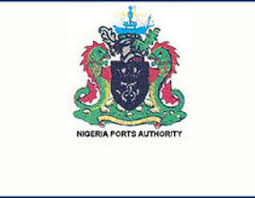Port Terminal Operators Limited (PTOL), one of the two terminal
operators running the Port Harcourt port, says it is anticipating more
cargo heading to Port Harcourt and is expanding its operational base
to accommodate this.
The General Manager, Darrick Moss, who stood in for the Managing
Director, Efoita Ephraim, said PTOL is anticipating more cargo
activities at the Port Harcourt port. He said management was already
seeking out space for expansion.
Port Harcourt port was divided into two terminals in 2006 and each
awarded to a terminal operator. Thereafter, the port went down in
volume of operations as eastern ports dwindled and Lagos boomed. Now,
eastern ports are bouncing back and terminal operators in the Port
Harcourt port said they are preparing for expansion.
The Nigeria Ports Authority (NPA) recently reduced fees to vessels
calling at eastern ports by 10 per cent. Many importers in Port
Harcourt have now rerouted their cargo to Port Harcourt to enjoy the
benefits. Also, attacks on vessels calling the Port Harcourt port are
said to have drastically reduced.
A source said it may be because most vessels come with hired security
teams ready to do battle with pirates and other sea vandals.
As a result, more vessels are said to be headed to eastern ports,
especially, Port Harcourt port. The operator of Terminal A Port &
Terminal Operators (Nigeria) Limited (PTOL), told Energy an Maritime
Reporters Corps (EMR) that paid a visit on Tuesday, August 6, 2019,
that they have continued to acquire special equipment needed to handle
different cargo types.
PTOL officials have however not attributed the boom to the 10 per cent
reduction or that the minister of transportation in recent past hails
from Rivers State. The GM only said, We expect expansion in Port
Harcourt port. Port Harcourt port is the only multi-purpose port
terminal in nearby areas. We have the lowest tariff around the region,
too.
Continuing, he said, We are prepared to work with the EMR to
disseminate information on Port Harcourt port and PTOL’s efforts in
the port.
Giving a background, Moss said PTOL was established in 2006 after the
concessioning of ports in Nigeria and handing over of two cargo
handling operations by the Nigeria Ports Authority (NPA). Bua has
Terminal B.
He said, It is a multipurpose terminal meaning that all types of cargo
can berth here: bulk cargo, break bulk cargo and cargo on wheels. Note
that container is no cargo type, but means of conveying it.
Experts explained that general cargo includes frozen fish, bagged
rice, bagged cement, project cargo, coated steel pipes etc. Dry cargo
includes bulk wheat, palm kernel shell, bulk cement etc; while liquid
cargo includes AGO, DPK, PMS, tallow, crude palm oil, base oil etc.
Moss pointed out that the port has a berth of 7.5 to 8.5, and that the
terminal yard can contain 7000 boxes. PTOL can handle any type of
cargo.
Earlier, the chairman of the EMR group, Martins Giadom of Radio
Rivers, said the group was glad to be well received here. We know that
PTOL acquired one of the best equipment in the industry. Training,
seminars, forum series are our needs. We need support to make them a
success. It will help us to sensitise the industry.
He further explained how the EMR would want its members to specialize
and deepen their knowledge of the industry because an ignorant press
corps is not of any benefit to anybody. We intend to build up capacity
and knowledge and thus we rely on industry leaders to help out in this
regard.
He commended PTOL for acquiring specialized equipment to make work
easier in the Port Harcourt port. He said the essence of the
concession was to improve port logistics efficiency in terms of
berthing of vessels, cargo discharge, storage and delivery. This
underscores the need for the terminal operator to invest in equipment
and terminal.
